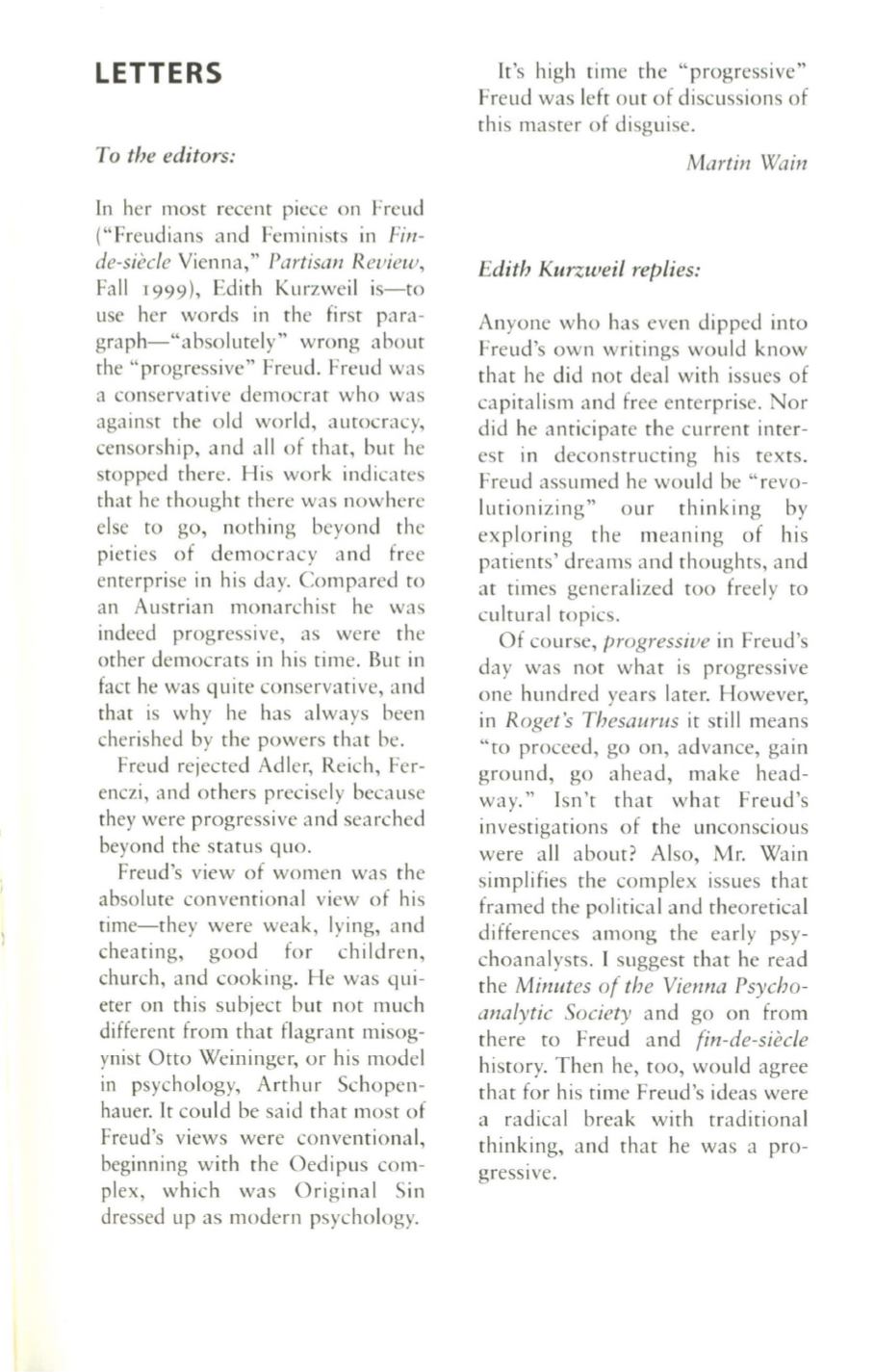
LETTERS
To the editors:
In her most recent piece on Freud
("Freudians and Feminists in
Fin–
de-siecle
Vienna,"
Partisan Review,
Fall (999), Edith Kurzweil is-to
use her words in the first para–
graph-"absolutely" wrong about
the "progressive" Freud. Freud was
a conservative democrat who was
against the old world, autocracy,
censorship, and all of that, but he
stopped there. His work indicates
that he thought there was nowhere
else to go, nothing beyond the
pieties of democracy a nd free
enterprise in his day. Compared to
an Austrian monarchist he was
indeed progressive, as were the
other democrats in his time. But in
fact he was quite conservative, and
that is why he has always been
cherished by the powers that be.
Freud rejected Adler, Reich, Fer–
enczi, and others precisely because
they were progressive and searched
beyond the status quo.
Freud's view of women was the
absolute conventional view of his
time-they were weak, lying, and
cheating, good for children,
church, and cooking. He was qui –
eter on this subject but not much
different from that flagrant misog–
ynist Otto Weininger, or his model
in psychology, Arthur Schopen–
hauer. It could be said that most of
Freud's views were conventional,
beginning with the Oedipus com–
plex, which was Original Sin
dressed up as modern psychology.
It's high time the "progressive"
Freud was left out of discussions of
this master of disguise.
Martin Wain
Edith Kurzweil replies:
Anyone who has even dipped into
Freud's own writings would know
that he did not deal with issues of
capitalism and free enterprise. Nor
did he anticipate the current inter–
est in deconstructing his texts.
Freud assumed he would be "revo–
lutionizing" our thinking by
exploring the meaning of his
patients' dreams and thoughts, and
at times generalized too freely to
cultural topics.
Of course,
progressive
in Freud's
day was not what is progressive
one hundred years later. However,
in
Roget's Thesaurus
it still means
"to proceed, go on, advance, gain
ground, go ahead, make head–
way." Isn't that what Freud's
investigations of the unconscious
were all about? Also, Mr. Wain
simplifies the complex issues that
framed the political and theoretical
differences among the early psy–
choanalysts. I suggest that he read
the
Minutes of the Vienna Psycho–
analytic Society
and go on from
there to Freud and
fin-de-siecle
history. Then he, too, would agree
that for his time Freud's ideas were
a radical break with traditional
thinking, and that he was a pro–
gressIve.


